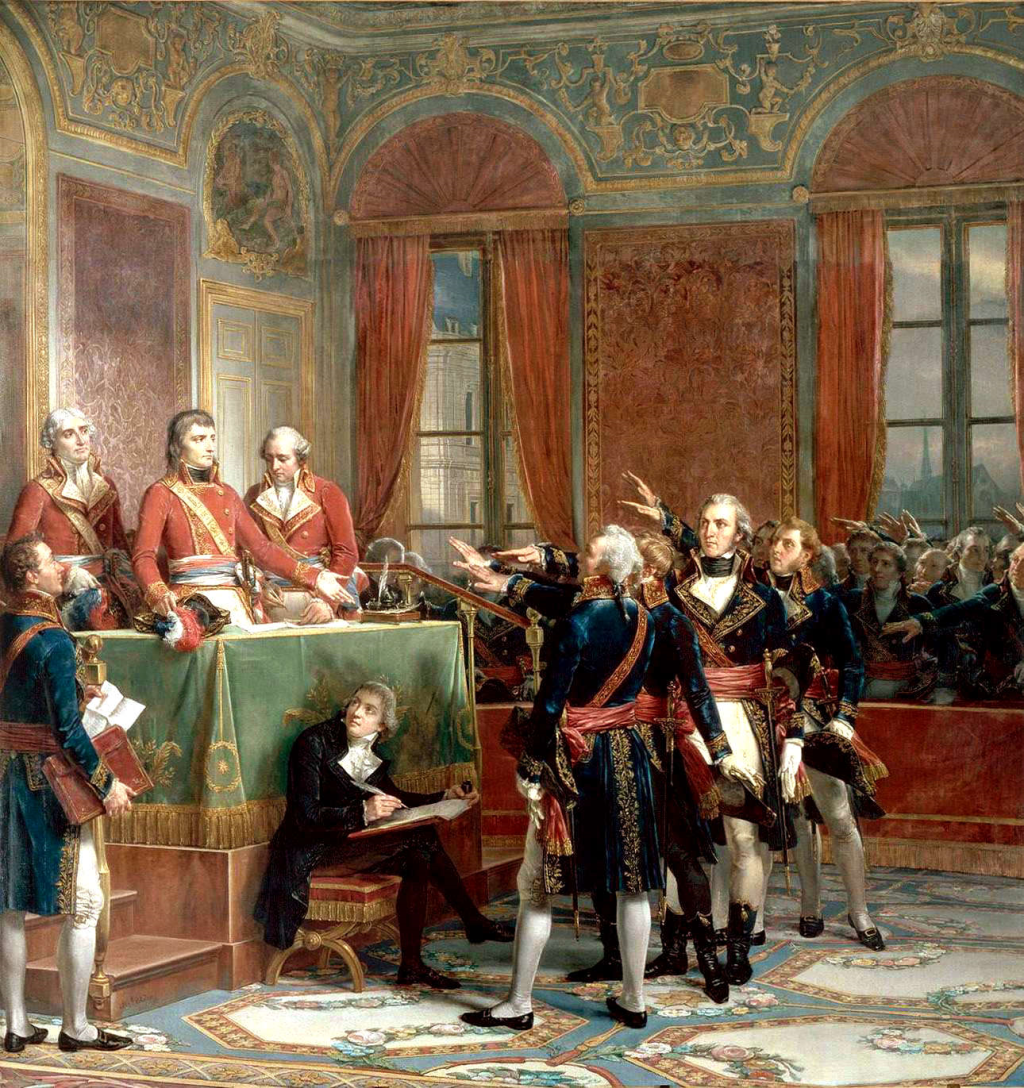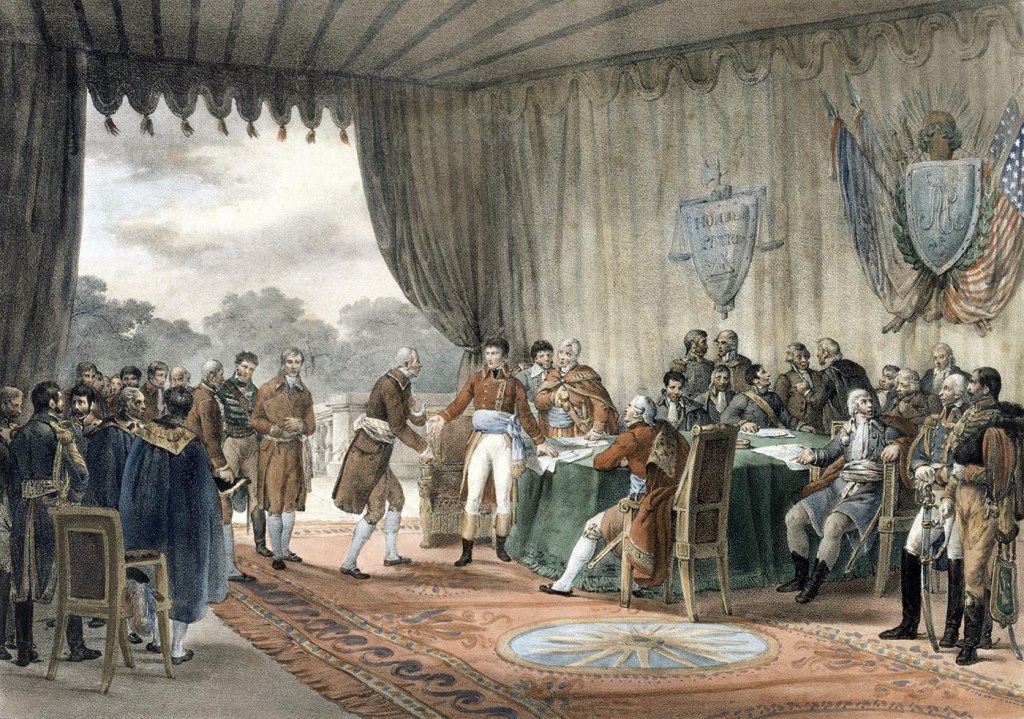The French Government in the 1800s: A Historical Overview
Introduction
Dear Readers,
Welcome to our comprehensive article on the French Government in the 1800s. In this piece, we will delve into the political landscape of France during this significant era. Join us as we explore the key aspects of the French government, its notable figures, important events, and the impact it had on the country and its people.

Image Source: wikimedia.org
So without further ado, let’s travel back in time to the 1800s and uncover the fascinating story of the French government.
What was the French Government in the 1800s?
🔍 The French government in the 1800s was shaped by a series of political changes and power shifts. It consisted of various systems, including monarchies, republics, and empires.
During the early 1800s, France was under the rule of Napoleon Bonaparte, who proclaimed himself Emperor in 1804 and established the First French Empire. However, his reign didn’t last long, and by 1814, he was forced to abdicate.

Image Source: wikimedia.org
Following Napoleon’s defeat, France underwent a period of restoration, during which the Bourbon monarchy was restored. However, this period was short-lived as political unrest and growing demands for change led to the July Revolution of 1830.
🔍 The July Revolution resulted in the establishment of a constitutional monarchy known as the July Monarchy, with Louis-Philippe as the king. This era witnessed economic growth and social reforms, but it was also marked by political divisions and opposition movements.
Fast forward to the mid-1800s, and France experienced yet another political transformation. In 1848, widespread social and political unrest led to the February Revolution and the establishment of the French Second Republic, proclaiming universal suffrage and democratic principles.
However, political instability persisted, and in 1851, Louis-Napoleon Bonaparte, nephew of Napoleon Bonaparte, staged a coup d’état, eventually declaring himself Emperor Napoleon III and establishing the Second French Empire.
Who were the Key Figures in the French Government in the 1800s?
🔍 The French government in the 1800s was shaped by influential leaders who left a lasting impact on French history. Let’s take a closer look at some of these key figures:
1. Napoleon Bonaparte: As the Emperor of the French, Napoleon Bonaparte played a pivotal role in reshaping the French government and legal system. His military campaigns and reforms left a lasting legacy.
2. Louis-Philippe: The last king of France, Louis-Philippe, ruled during the July Monarchy. He faced challenges from both conservative and progressive factions, eventually abdicating the throne in 1848.
3. Louis-Napoleon Bonaparte (Napoleon III): The nephew of Napoleon Bonaparte, Louis-Napoleon Bonaparte’s rise to power marked the establishment of the Second French Empire. His reign witnessed modernization and economic development.
4. Adolphe Thiers: Adolphe Thiers served as the first President of the French Third Republic. He played a crucial role in the suppression of the Paris Commune and the stabilization of the republic.
5. Georges Clemenceau: Georges Clemenceau, a prominent statesman, served as the Prime Minister of France during World War I. He was known for his strong leadership and determination.
When Did the French Government in the 1800s Exist?
🔍 The French government in the 1800s existed from the time of Napoleon Bonaparte’s rise to power in 1804 until the establishment of the French Third Republic in 1870. This period encompassed various political regimes, including the First French Empire, the Bourbon Restoration, the July Monarchy, the French Second Republic, and the Second French Empire.
It’s important to note that the French Third Republic lasted beyond the 1800s, continuing until the fall of France during World War II in 1940.
Where Did the French Government in the 1800s Operate?
🔍 The French government in the 1800s operated primarily in France, with Paris serving as the political and administrative center. The city witnessed significant political events and housed key institutions, including the Palais Bourbon and the Tuileries Palace.
During different periods, the French government also extended its influence over overseas territories, including colonies in Africa, Asia, and the Americas. These territories were governed under various colonial administration systems.
Why Did the French Government in the 1800s Undergo Multiple Changes?
🔍 The French government in the 1800s underwent multiple changes due to various factors, including political unrest, social movements, and power struggles. The desire for political representation, social equality, and economic progress fueled these changes.
The French Revolution of 1789, which preceded the 1800s, had a profound impact on the political landscape of France. It led to the rise of Napoleon Bonaparte and the subsequent establishment of the First French Empire.
However, internal and external pressures, along with conflicts with other European powers, contributed to the downfall of Napoleon’s empire and the subsequent political transformations.
Political ideologies such as liberalism, nationalism, and socialism gained traction during this period, leading to demands for political rights, social reforms, and the establishment of democratic systems.
Additionally, economic factors, such as industrialization and urbanization, played a role in shaping the political discourse of the time, with various factions vying for power and influence.
How Did the French Government in the 1800s Function?
🔍 The French government in the 1800s functioned differently under each political regime. Here’s a brief look at how some of these systems operated:
1. First French Empire: Under Napoleon Bonaparte, the government followed a centralized system, with power concentrated in the hands of the Emperor. The legal system was reformed, and a civil code, known as the Napoleonic Code, was established.
2. Bourbon Restoration: During this period, France had a constitutional monarchy, with a parliamentary system and a King as the head of state. However, the monarchy faced challenges from different political factions and eventually gave way to the July Monarchy.
3. July Monarchy: The July Monarchy adopted a constitutional framework, with a King as the head of state and a bicameral legislature. However, the monarchy faced opposition from republicans and socialists, leading to its downfall.
4. French Second Republic: The French Second Republic was a democratic system that proclaimed universal suffrage and equal rights. It had a President as the head of state and a unicameral legislature. However, political divisions and economic challenges led to its collapse.
5. Second French Empire: Under Napoleon III, the Second French Empire had a centralized system, with power concentrated in the hands of the Emperor. It followed an authoritarian framework, limiting political freedoms.
Advantages and Disadvantages of the French Government in the 1800s
Advantages:
✅ Stability: Some regimes, such as the July Monarchy and the Second French Empire, provided periods of stability and economic growth.
✅ Modernization: The French government during this period introduced various reforms, including infrastructure development and legal reforms.
✅ Cultural Influence: France’s political and intellectual contributions during the 1800s had a significant impact on European culture and thought.
Disadvantages:
❌ Political Instability: The frequent changes in regime and political unrest hindered long-term stability and governance.
❌ Limited Political Rights: The French government of this era witnessed varying levels of political repression and limited suffrage.
❌ Colonial Exploitation: France’s colonial endeavors during this period led to the exploitation and suffering of colonized peoples.
Frequently Asked Questions about the French Government in the 1800s
1. Q: Was France a republic during the 1800s?
A: Yes, France experienced multiple republican periods during the 1800s, including the French First Republic and the French Second Republic.
2. Q: Who was the longest-serving leader of France in the 1800s?
A: Louis-Napoleon Bonaparte, who became Emperor Napoleon III, served as the leader of France from 1852 to 1870.
3. Q: Did France have colonies during the 1800s?
A: Yes, France had colonies in Africa, Asia, and the Americas during the 1800s. These colonies were governed under different administrative systems.
4. Q: What impact did the French government in the 1800s have on European politics?
A: The French government in the 1800s played a crucial role in shaping European politics, with its ideologies and political developments inspiring movements across the continent.
5. Q: How did the French government in the 1800s impact French society?
A: The French government in the 1800s brought about significant social, economic, and cultural changes in France, including legal reforms, infrastructural development, and the spread of Enlightenment ideas.
Conclusion
In conclusion, the French government in the 1800s underwent multiple changes, transitioning between different political systems and experiencing periods of stability and unrest. The key figures and events of this era left a profound impact on French history, shaping the country’s political, social, and cultural landscape.
As we reflect on the French government in the 1800s, it is essential to recognize both its achievements and shortcomings. While it introduced important reforms and contributed to European thought, it also faced challenges in terms of political stability and the protection of individual rights.
By understanding this historical period, we gain valuable insights into the complexities of governance and the continuous struggle for progress and democracy.
Final Remarks
Dear Friends,
We hope you found this article on the French government in the 1800s informative and engaging. Exploring the political dynamics of this era allows us to delve into the rich history of France and witness the evolution of its governance systems.
As with any historical analysis, it is important to approach the subject with an open mind and consider the multiple perspectives and interpretations that exist. History provides us with valuable lessons, and by learning from the past, we can strive for a better future.
Thank you for joining us on this journey through time. Happy learning!